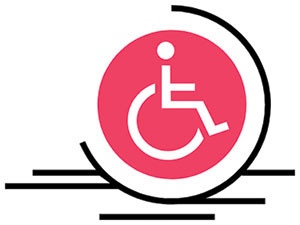The ongoing fight to improve the livelihood of individuals living with disabilities has continued on the local, state and federal levels. In an interview with The Somerville Times, Colin Killick, chairman of the Somerville Commission for People with Disabilities (SCPD), explained some of the goings-on occurring in the community.
Killick stated three of the biggest problems facing people with disabilities are poverty, housing and employment, all of which are difficult matters to overcome. Homelessness and independent living were the main topics of discussion in the interview, as local and state officials have been pushing the expansion of the Alternative Housing Voucher Program.
This piece of legislation has been around since 1995 and helps to ensure that people with disabilities who are not elderly can get rental vouchers for housing. Eligible participants must fit the criteria of state law (Ch. 667) and be under the age of 60, and it enables tenants to pay between 25 and 30 percent of their net income to the landlord. The state’s local housing authority pays the balance.
Killick explained that the AHVP is a critical program given the high rate of homelessness among individuals with disabilities. What’s more, the commission and many officials have pushed hard to ensure that people with disabilities have the option to live relatively autonomous lives, rather than having the only option of staying in nursing homes or similar facilities.
More recently, state officials and advocacy groups have been pushing for an expansion of the program to be more inclusive and help a greater volume of individuals with disabilities.
“As I brought up before, people with disabilities tend to be poor, and we live in a state with very expensive housing where the least expensive housing is the least likely to be accessible; just think of the typical Somerville triplex with the rickety stairs,” Killick said. “As a result, aside from those who wind up on the street, a lot of people with disabilities wind up in nursing homes –people who aren’t elderly, who are capable of living on their own with (personal care assistant) support and who don’t want to be there- because if you spend your savings down to essentially zero, MassHealth will pay for your nursing home care.”
He went on to note that living in a nursing facility will generally cut the person off from leading a normal life, in that they cannot work, participate in volunteer programs or shop at local businesses.
“What the AHVP does is it liberates people from that; it lets you live anywhere in the state, in an ordinary apartment, and guarantees that you won’t pay more than 30 person of your income for it. Basically, it’s a ticket to an independent life. And what we’re fighting for, basically, is 150 more of those tickets,” Killick stated.
State officials, including Rep. Timothy Toomey and former Rep. Carl Sciortino, who just stepped down from his position to be executive director of the AIDS Action Committee of Massachusetts, have been especially active in the fight to expand funding for the AHVP. Killick noted that Sen. Pat Jehlen, who has been a major advocate of the people with disabilities community, and local officials such as the Board of Aldermen continue to work proactively for the betterment of Somerville’s residents with disabilities through sidewalk repairs and other everyday activities.
Between the efforts of SCPD, other local advocacy groups and officials in each level of government, the community hopes to get more done to support individuals with disabilities.
















Reader Comments